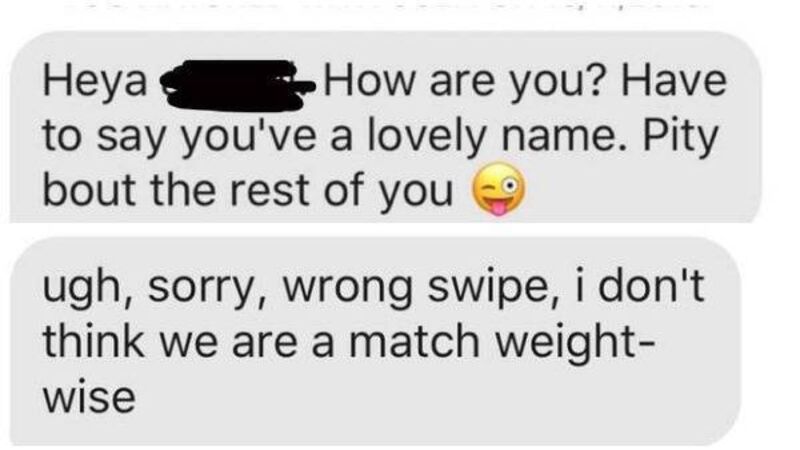Ousted: How one woman deals with creepy dating app messages

Since posting screenshots of the messages she gets online, Abi has discovered that many of her friends had been receiving the exact same messages on Tinder.
We’ve all been there. You match with someone on a dating app, you’re excited to see they sent the first message, and then you look to see a message that’s either totally inappropriate or just tone-deaf.
Last year, Pew Research revealed that according to their studies, almost half of dating app users reported receiving unwanted explicit messages online. Another 71% expected people to lie on their profiles.







